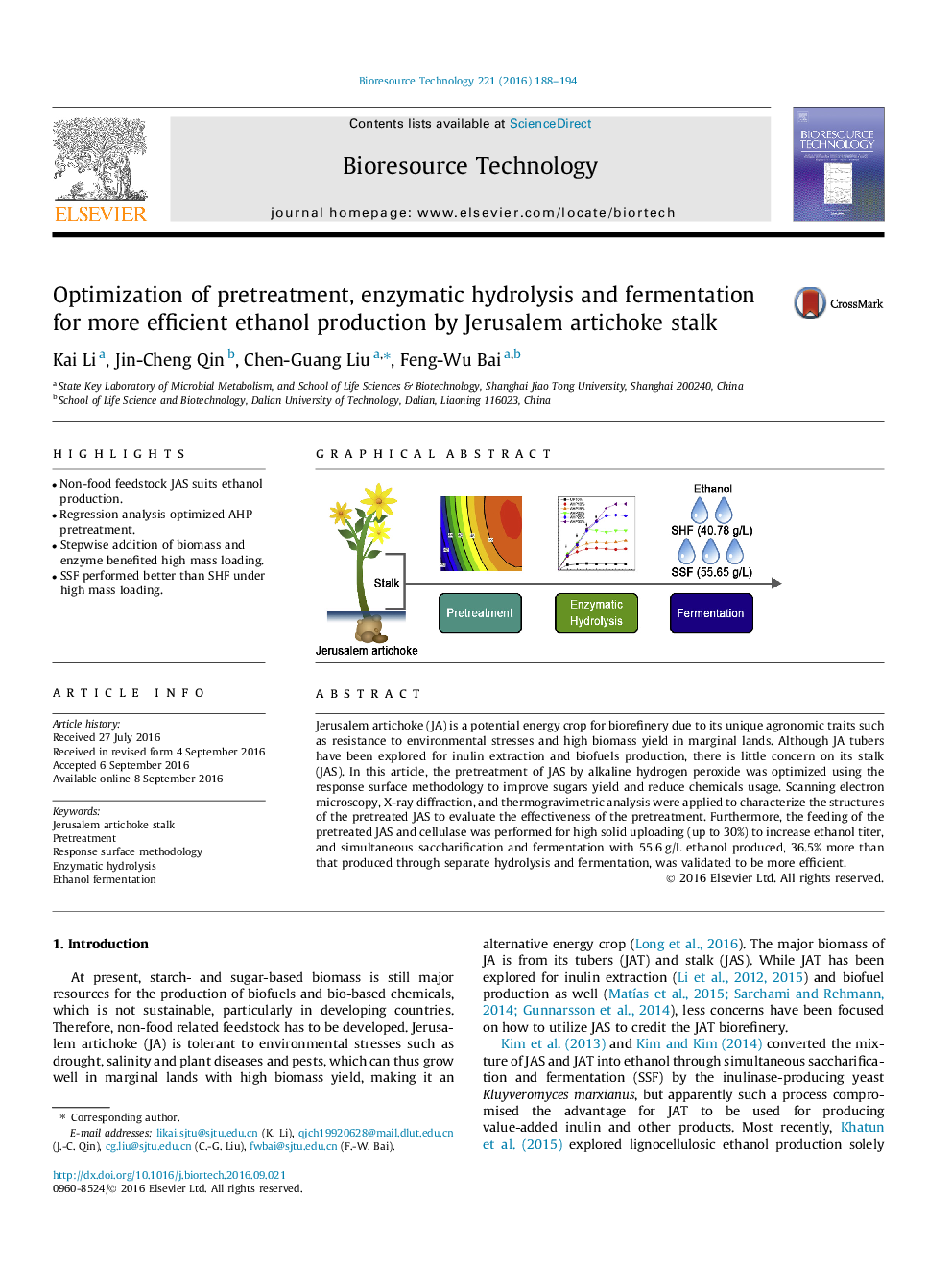| Article ID | Journal | Published Year | Pages | File Type |
|---|---|---|---|---|
| 4998055 | Bioresource Technology | 2016 | 7 Pages |
â¢Non-food feedstock JAS suits ethanol production.â¢Regression analysis optimized AHP pretreatment.â¢Stepwise addition of biomass and enzyme benefited high mass loading.â¢SSF performed better than SHF under high mass loading.
Jerusalem artichoke (JA) is a potential energy crop for biorefinery due to its unique agronomic traits such as resistance to environmental stresses and high biomass yield in marginal lands. Although JA tubers have been explored for inulin extraction and biofuels production, there is little concern on its stalk (JAS). In this article, the pretreatment of JAS by alkaline hydrogen peroxide was optimized using the response surface methodology to improve sugars yield and reduce chemicals usage. Scanning electron microscopy, X-ray diffraction, and thermogravimetric analysis were applied to characterize the structures of the pretreated JAS to evaluate the effectiveness of the pretreatment. Furthermore, the feeding of the pretreated JAS and cellulase was performed for high solid uploading (up to 30%) to increase ethanol titer, and simultaneous saccharification and fermentation with 55.6Â g/L ethanol produced, 36.5% more than that produced through separate hydrolysis and fermentation, was validated to be more efficient.
Graphical abstractDownload high-res image (93KB)Download full-size image
